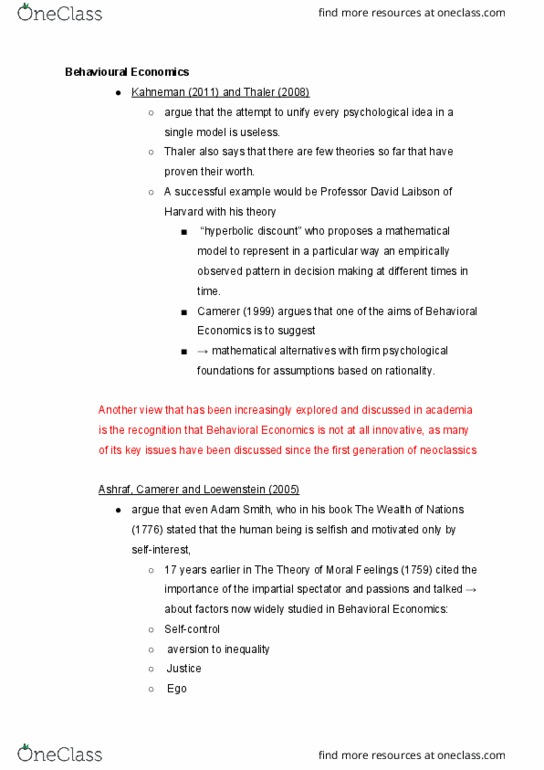ECO200Y1 Lecture Notes - Lecture 25: Homo Economicus, Behavioral Economics
ECO200Y1 verified notes
25/26View all
Document Summary
Empirical studies in behavioral economics have investigated how human beings are affected by factors such as: Form that a choice is presented (framing) Context in which the choice is inserted. Insertion of choice in a time horizon. Aversion to inequality, reciprocity, justice, among others. These factors, often considered insignificant, can prove to alter the preferences of the decision maker - or of a group - In such a decisive way that forecasts previously considered robust become erroneous and even dangerous. Behavioral economics does not discuss the importance of neoclassical theory which, In order to simplify, generalize and make possible the construction of models for important economic theories, uses the concept of the so-called homo economicus. (rational, weighted decision maker, centered on personal interest and with unlimited ability to process information). Individuals always choose actions that maximize their usefulness and well-being, besides, they satisfy consistent preferences. Even more: that these choices are indifferent to time and risk.




